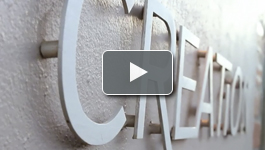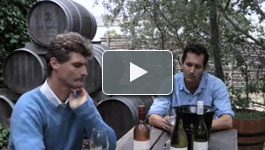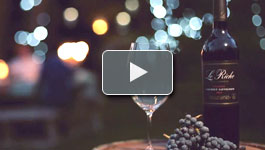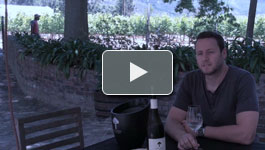BLANKbottle
Regarded as one of the most innovative producers in South Africa, in 2004 Pieter Walser pursued an ambition to make wine of quality, excitement and mystery – for those intrigued by what’s in the bottle, not by what’s on the label. Armed with an education in Agriculture, Viticulture and Oenology, and a nomadic, adventurous spirit, BLANKbottle was born. Pieter sought creative flexibility, and to be unconstrained when it came to style, region, vintage and cultivars. This led him to form alliances with vineyards, winemakers and wineries throughout the country, and the opportunity to craft unique blends of premium character. This versatility turned out to be the BLANKbottle edge.
Pieter’s eclectic range is from vineyards positioned across the Western Cape, representing diverse regions, micro-climates, soil types, and varietals, ultimately leading to different wine styles and the ability to also introduce once-off limited runs of compelling wines. As Pieter tells it himself, “When I started BLANKbottle, my goal was to create an honest wine brand that had no limitations in order to break down any preconceived expectations….I’ve come to realize that the road I’m on does not necessarily lead to the perfect winery. Rather, it’s an adventure, it gives me stories to tell, and that I count as my true riches and success.” As it turns out, the BLANKbottle labels are in fact as exceptional as the wine, having recently won multiple awards, including the Grand Prix, at the 2015 Wine Label Design Awards.
Cape Point Vineyards

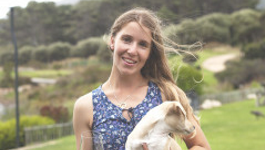
Founded in 1996, Cape Point Vineyards is dramatically positioned near the southernmost tip of South Africa on the narrow Cape Peninsula between the Atlantic Ocean and False Bay. Growing conditions are influenced by the close proximity to water and mountains, with the plantings designed to take advantage of the distinct decomposed granite and sandstone soils. Inspired by the wines of Didier Dagueneau, Cape Point has achieved a reputation of producing the finest Sauvignon Blanc in the Western Cape, as well as one of the country’s most highly regarded white blends.
The winemaking is led by Riandri Visser, who shifted from a planned career in graphic design to the vineyards; following her university studies in viticulture and enology, she pursued her ambition in the wine industry to become the assistant winemaker at Cape Point before taking over in 2016, where she has continued to enhance the style and tradition of the estate.
Catherine Marshall Wines
Nestled in South Africa’s Elgin Valley, renowned for superior, cool climate wines, lies Catherine Marshall Wines; originally inspired by a foot-crush celebration in 1996 that produced the bottling of three barrels of delicious Syrah that was distributed amongst the party revelers.
With a highly regarded background of winemaking experience in South Africa, Burgundy, Bordeaux, and the USA, Catherine was instrumental in formalizing the Garagiste Movement, which has gone on to great success in South Africa.
Catherine’s philosophy is to create wines from vineyards that produce fruit of purity, which express the geographical nuances and character of each site. She then applies minimal and thoughtful intervention in the cellar, so that each wine reflects the very essence of its origins. This was recently recognized by the International Wine Review in distinguishing her Pinot Noir as among the best in the country.
Creation
Creation was established in 2002, when Swiss winemaker Jean-Claude Martin and his South African wife Carolyn found a small, undulating tract of virgin land in the Hemel-en-Aarde Ridge, never before planted to vines. Perfectly situated for winegrowing in the acclaimed Walker Bay appellation, twenty-two hectares were ultimately selected and planted with virus-free strains of the finest varietal clones.
The vineyards are located 350 metres above sea level and just seven kilometres from the cooling breezes of the Atlantic Ocean; this elevation and climate, combined with ideal soil types, create growing conditions which rival the world’s best. As registered members of the Biodiversity & Wine Initiative (BWI), Creation is also committed to helping preserve the country’s rich natural heritage by implementing long-term biodiversity and sustainability programs.
The team’s skill, artistry, and attention to quality is reflected in the international recognition that Creation has received, including Veritas Double Gold, International Wine and Spirits Competition Gold, nine, 90+ reviews from The Wine Advocate in December, 2012, and a Gold Trophy for Pinot Noir in the Vinidivio competition in Dijon, France.
De Meye
Called “one of the best kept secrets in the Cape”, De Meye is a family-owned, boutique winery situated in Stellenbosch, one of South Africa’s most prestigious wine regions. The farm and winery are named after the De Meye river in Holland, birthplace of the first Myburgh who came to South Africa in 1665.
The owners, Jan and Philip Myburgh, are the fifth and sixth generation to farm in this area, and all of the wines are produced from grapes grown on De Meye farm. They speak of modern vineyard management and respect for the environment, with great care taken from the vineyard to the cellar.
In addition to producing wines of consistently high quality and great value as noted by the Platter Wine Guide, De Meye is also well known for its food, with The Table at De Meye winning the 2011 Eat Out Award for Best Country Style Restaurant.
Le Riche Wines
Le Riche Wines, situated on the slopes of the Helderberg Mountain and in close proximity to the historic town of Stellenbosch, was founded by Etienne le Riche in 1996. As a founding member of the Cape Winemakers Guild and following an illustrious career as one of the country’s leading winemakers, Etienne embarked on an independent path to create a winery where he could embrace the cultivar he had grown to love and respect, Cabernet Sauvignon. Now run as a family concern with old style open top concrete fermentation tanks supported by a modern, minimal intervention winemaking approach, the winery provides a platform to create premium red wines in a classic South African style.
With an objectve to illuminate the nuances of Stellenbosch Cabernets, Etienne chose to not be constrained by estate classification and therefore selects grapes from the best possible sites that Stellenbosch had to offer, with a combination of soil, climate, clones and vine age used determine the vineyard blocks selected. Vineyard blocks are vinified separately to determine their quality and style, ensuring that their unique character is understood and shown. The resulting wines have displayed great elegance and class, consistently proving to be of superb quality and maturation potential as evidenced by winning their second straight SA Top 100 Wine Consistency award in 2015.
Mount Abora


For the team behind these exciting wines, Mount Abora is a mythical place of their collective imagination, as inspired by English romantic poet Samuel Taylor Coleridge in his poem Kubla Khan. Mount Abora wines are created by first imagining their texture, brightness and luminosity, and then going in search of old Swartland vineyards to turn those dreams into a delicious reality. The grapes for Mount Abora wines are sourced from vineyards with soils of deep shale and schist; the vines, mostly planted on south and west facing slopes to optimize the benefit of cooler sites, are farmed essentially as dryland vineyards with supplementary irrigation to counter the extreme hot and dry conditions just before ripening.
Johan Meyer, one of the Cape’s recognized young winemaking leaders, crafts the wines of Mount Abora. Johan produces natural wines, using zero commercial yeast and no other modern winemaking preparations. The grapes are harvested earlier to ensure lower alcohol levels and to retain brightness and life. Whole bunch fermentation is liberally utilized on both red and white wines, with post-fermentation hot maceration on skins and stalks. As proud members of the Swartland Independent movement, Mount Abora reflects not only a vivid imagination, but a true sense of place with innovative, compelling wines.
Rall Wines

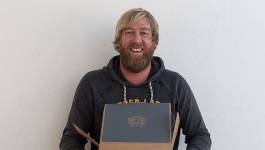
From one of South Africa’s rising stars to now one of the most influential and important winemakers in the country, Donovan Rall has produced exceptional wine that has been extolled by critics since his launch vintage of Rall Wines in 2008. Following an education in viticulture and oenology, extensive travels and harvests eventually brought him back to the Swartland where he found his inspiration for Mediterranean varietals, and the dream of making unique and naturally-styled wines under his own label from scattered old vineyards. Working closely with growers in the Swartland and in Stellenbosch to secure the best possible fruit at the optimal ripeness and balance, the vineyards are selected on the basis of soil type and age of the vines. Currently, the fruit for the Rall range is sourced from ten different vineyards, primarily from Swartland, with the main soil types being decomposed granite for the white and schist for the red. The hands-off winemaking technique that follows is only possible if the vines are low yielding and the growth is in balance.
Donovan has always produced small quantities by hand from the most unique and oldest sites he could find. The winemaking is simple, with each parcel allowed to ferment and mature naturally in order to truly reflect the character of each vineyard. The first ten barrels of Rall Wines were made in 2008, and while the Rall range has evolved, the approach has remained the same; production is still very small, and the focus remains on learning and understanding more about each vineyard and its contribution every vintage.
Richard Kershaw Wines

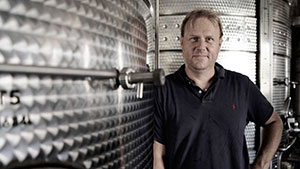
Richard Kershaw Wines was established in 2012 to create world-class, clonally selected, site-specific, cool climate wines. South Africa’s coolest wine district, Elgin Valley, provides the high altitude, ocean proximity, specific cloud cover sequencing, high cold units and large diurnal range which enables the Kershaw Chardonnay and Syrah to demonstrate a sense of place.
The climate leans toward Southern Burgundy and the Northern Rhône, prerequisites for using Chardonnay and Syrah, deemed “noble” in that they have the ability to produce world-class examples and show positive development attributes through age. The Kershaw Elgin Chardonnay makes use of the lower-yielding Dijon clones, namely 76, 95, and 96, developed at the University of Burgundy in Dijon, France, while the Kershaw Elgin Syrah utilizes local clones 9c and 22, with each wine made from three to four small parcels on terroir-specific plots with particular soil types.
Stylistically, the aim is to faithfully reproduce the particular attributes associated with wines from these areas. In the case of the Chardonnay, the aspiration is for a restrained, mineral style focused on elegance with a white, fruit character, some oatmeal, and complexity gained from percipient wood. For the Syrah, the desire is subtlety and precision built on fine tannins that educe harmony, freshness, and flavors of dark fruit and black pepper.
The founder and winemaker, Richard Kershaw, was born and raised in the UK and left a successful career as a chef to pursue his passion for wine. Now an International Master of Wine, Richard is also a widely respected wine writer and judge of wine competitions.
Rupert & Rothschild

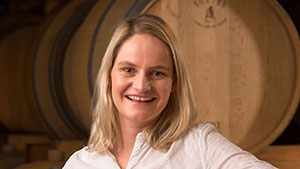
The Rupert & Rothschild partnership was formed in 1997 by the late Dr Anton Rupert of South Africa and the late Baron Edmond de Rothschild of France. Their vision was carried forward by their sons, the late Anthonij Rupert and Baron Benjamin de Rothschild. Today, the Rupert family and Baron Benjamin de Rothschild share this prestigious wine partnership.
Fredericksburg, the historic French Huguenot farm established in 1690 at the foot of the spectacular Simonsberg mountain in the Franschhoek Valley, is home to Rupert & Rothschild Vignerons. It was in this valley over 300 years ago that the early French Huguenots first discovered a terroir similar to that of winegrowing regions in France and chose to settle and cultivate vineyards here. Yvonne Lester leads the winemaking, ensuring beautifully balanced, refined, and elegant Bordeaux blends and Chardonnay.
In addition to the pursuit of producing world-class wine, the Rupert & Rothschild families are deeply committed to the preservation and conservation of the environment, as well as to initiatives of social responsibility such as the Dennegeur community project. In collaboration with two other Rupert-owned properties, Rupert and Rothschild Vignerons established Dennegeur to serve as an example of true empowerment, by providing a platform for workers to have a stake in farming activities, to create opportunities for home ownership, and to build a safe, secure, community-oriented domain for the families with diverse learning, health care, and recreational facilities.
Stony Brook Vineyards
Stony Brook Vineyards is a boutique, family-run wine farm in the beautiful Franschhoek valley, described by many as the food and wine capital of South Africa. The owners, Nigel and Joy McNaught, founded Stony Brook to satisfy their love of quality wines. Their son, Craig McNaught, now leads the winemaking with a dynamic and innovative perspective.
The McNaught’s produce a range of wines in relatively small quantities, and in an environmentally-sensitive manner that reflects the unique micro-climate of this southernmost corner of Franschhoek.
The Stony Brook portfolio has won praise from the Platter Wine Guide, and, as stated by the New York Times, a visit to Stony Brook “spotlights what this valley does best: pairing high-quality wine with an intimate, open-air tasting experience.”
Swerwer

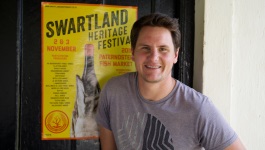
Swerwer, translated as “wanderer”, is Jasper Wickens, and the owner/winemaker has found his place in the Paardeberg region of the Swartland. After a decade working for Adi Badenhorst, Jasper is on his own with the Swerwer brand. Originally started as a way to impress his girlfriend, successfully, they now team as viticulturist and winemaker for one of the most exciting young projects in the country. Situated within the diversity of the Paardeberg Mountain, Jasper is demonstrating the potential of what was formerly considered an unremarkable wine region; the combination of his touch with farming, the existence of old bush vines on granite soil, and his winemaking philosophy of whole bunch press, wild yeasts, old French wood, and maturation on gross lees is dramatically changing that perspective.
Van Loggerenberg

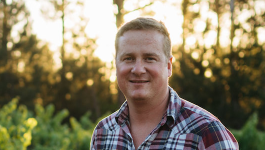
Study, two vintages in the Finger Lakes, winemaking back in South Africa for two estates, and a healthy dose of Loire inspiration led Lukas Van Loggerenberg to launch his own project in 2016. Good decision. Based in the Devon Valley of Stellenbosch, Lukas is now at the forefront of South African winemaking differentiation and quality. Focused on expressing the characteristics of specific patches of earth in Stellenbosch, Paarl, and the Swartland reflecting a combination of granite, sandstone and shale soils, he produces wines in very small quantities that have achieved a compelling combination of restraint and complexity. The winemaking approach uses whole bunch press, spontaneous fermentation, older French barrels, and excludes any enzymes or commercial yeasts. Each label portrays a specific personal message, as well as a representation of his South African heritage.
Vuurberg

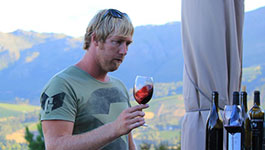
Vuurberg is owned by Sebastiaan Klaassen, a Dutchman that came to South Africa on holiday to kitesurf, but became entranced with the country and eventually decided make it his home and produce wine. Donovan Rall joined Sebastiaan in 2010 to take on the winemaking leadership, and together they have enjoyed continuing success with two blends, including being recoginized as one of Decanter’s Top 50 wines of 2013.
The farm is stunningly situated against a mountain along the Helshoogte Pass, one of the oldest in the Cape, on soil that is big, red and clay-like; a composition that led them to plant Petit Verdot, Cabernet Sauvignon, Malbec, and Cabernet Franc, as well as Chenin Blanc and Viognier at the top of the property. Inspired by the Helshoogte (“Hell’s Heights”) location and the imposing mountain backdrop, the name Vuurberg (“Fire Mountain”) was created. Sebastiaan designed the labels, which include a tribute to his children as part of the logo.






